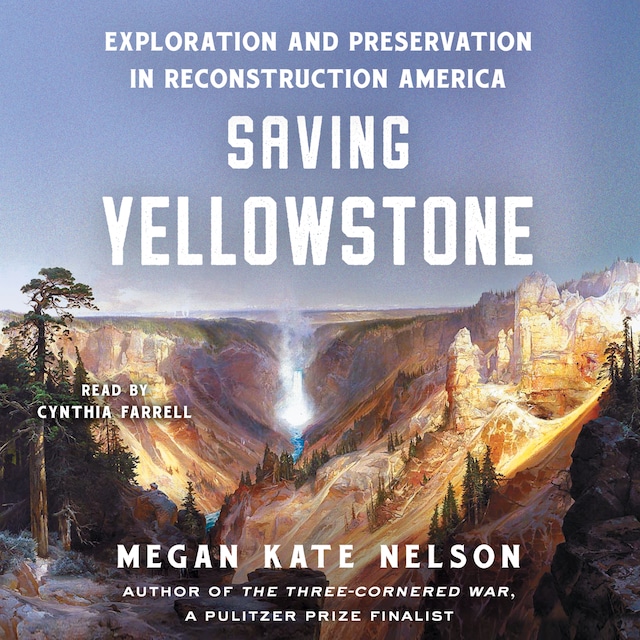
Saving Yellowstone
Exploration and Preservation in Reconstruction America
Om bogen
From historian and critically acclaimed author of The Three-Cornered War comes the captivating story of how Yellowstone became the world’s first national park in the years after the Civil War, offering “a fresh, provocative study…departing from well-trodden narratives about conservation and public recreation” (Booklist, starred review).
Each year nearly four million people visit Yellowstone National Park—one of the most popular of all national parks—but few know the fascinating and complex historical context in which it was established. In late July 1871, the geologist-explorer Ferdinand Hayden led a team of scientists through a narrow canyon into Yellowstone Basin, entering one of the last unmapped places in the country. The survey’s discoveries led to the passage of the Yellowstone Act in 1872, which created the first national park in the world.
Now, author Megan Kate Nelson examines the larger context of this American moment, illuminating Hayden’s survey as a national project meant to give Americans a sense of achievement and unity in the wake of a destructive civil war. Saving Yellowstone follows Hayden and two other protagonists in pursuit of their own agendas: Sitting Bull, a Lakota leader who asserted his peoples’ claim to their homelands, and financier Jay Cooke, who wanted to secure his national reputation by building the Northern Pacific Railroad through the Great Northwest. Hayden, Cooke, and Sitting Bull staked their claims to Yellowstone at a critical moment in Reconstruction, when the Ulysses S. Grant Administration and the 42nd Congress were testing the reach and the purpose of federal power across the nation.
“A readable and unfailingly interesting look at a slice of Western history from a novel point of view” (Kirkus Reviews), Saving Yellowstone reveals how Yellowstone became both a subject of fascination and a metaphor for the nation during the Reconstruction era. This “land of wonders” was both beautiful and terrible, fragile and powerful. And what lay beneath the surface there was always threatening to explode.


